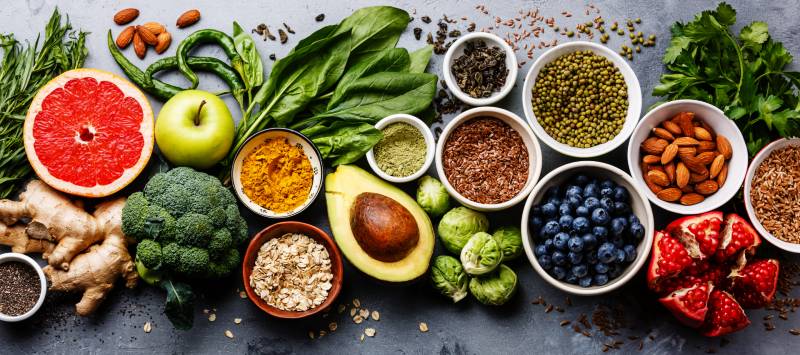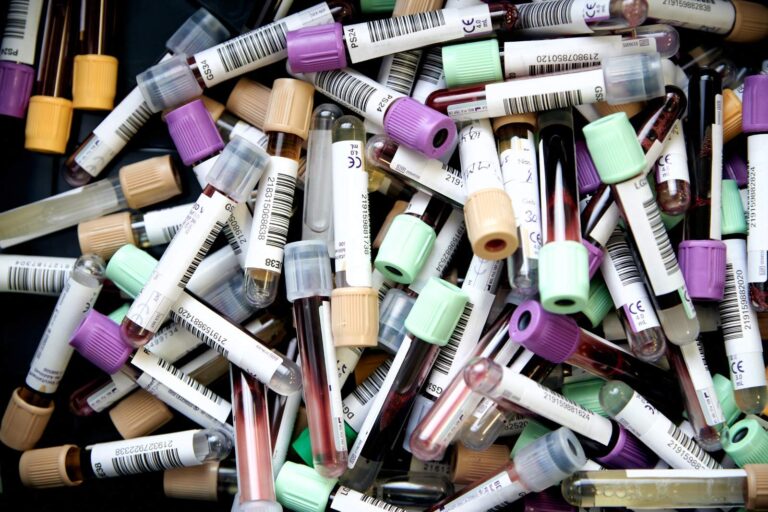We know from the HFEA that an estimated 1 in 6 UK couples will face fertility changes at some point and that a diagnosis of infertility usually occurs after a couple have been trying to conceive naturally for 2 years. We also know that 30% of cases are attributed to male factors.
Of course, IVF is an option, but it takes 3 cycles (on average) for success and success statistics vary by female age and clinic. It can also be costly, invasive and emotionally and physically challenging and often involves drug therapies, which some would prefer to avoid.
Those statistics never make happy reading. And I certainly wish this wasn’t the case, but it is. That’s why I encourage anyone planning a baby naturally or via some assisted means to focus on improving their own health before they start. It’s maxing your chances of natural conception or IVF success. To me, it’s an investment; an investment before you have to invest time, energy, emotion and money into pursuing other options. An investment that may mean some people don’t have to pursue other options.
Here, I want to focus on male fertility, but the idea equally applies to women.
Sperm health is key. That’s sperm count, sperm quality, morphology (form and structure) and DNA health. Any fertilisation by a poor quality sperm risks pregnancy viability. And sperm health is influenced by diet and lifestyle factors, which means men can choose to take positive action.
And how might they do that you may well ask?
You can start by changing the way you eat to a varied diet of real, wholefoods and avoiding anything processed, packaged, “junk” or “takeaway” and avoiding sugar.
There are also certain nutrients that really support make fertility and I want to run through them quickly here to help inform food choices.
Essential Fatty Acids
Semen is rich in prostaglandins and low prostaglandins have been linked to sperm abnormalities.
You can choose to up intake of essential fatty acids by eating more oily fish like salmon, trout, sardines and mackerel. Other sources of healthy fats are eggs, organic and full fat dairy (if you can tolerate it), nuts and seeds.
B Vitamins
Folic acid (buy the methylated form if you choose to supplement) is required for sperm count and low levels have been shown to affect the DNA of the sperm.
Sources include leafy green vegetables, legumes, citrus, yeast and beef extract, wholegrains, poultry, pork and shellfish and some foods are fortified but with folic acid, not methylfolate.
B6 is involved in the process of testosterone production. Good sources are Brewer’s Yeast, whole grains, offal, mushrooms, wheat germ and molasses.
B12 may help improve low sperm count. You can find it in eggs, liver, meat, cheese and fish.
Vitamin C
Low levels of Vitamin C have been associated with lower sperm quality and DNA damage to sperm. Vitamin C is also linked to lower agglutination or “clumping”.
It’s found in citrus fruits, berries, apples and pears , mango, melon, green leafy vegetables, peppers, carrot and lots of other veggies and fruits.
Vitamin E
Vitamin E is an antioxidant, which means that it combats damage by free radicals (atoms in the body which damage cells, proteins and DNA) , which in turn is linked to low sperm count. It make sperm more fertile.
Good sources are wholegrains, egg yolk, avocado, nuts and seeds, green leafy vegetables, cold pressed unrefined oils, organic and full fat dairy.
Vitamin D
When is a vitamin not a vitamin? When it’s Vitamin D! It’s actually a hormone. And it’s involved in sperm production and development.
We make most of our Vitamin D from sun exposure therefore most UK people are advised to supplement in winter. Check out the NHS website on the subject.
Food sources are eggs, organic and full fat dairy, oily fish.
Zinc
This nutrient is found in large quantities in sperm and is needed for the tail and outer layer. Low zinc is associated with low testosterone and sperm count. A large amount of zinc is lost in each ejaculate, so regular ejaculation depletes zinc.
You can find zinc in wholegrains, Brewer’s Yeast, all fruits and veggies, nuts, offal, poultry and shellfish.
Selenium
Low levels of selenium is linked with poor sperm motility (ability to move or “swim”). It is needed for formation of healthy, fertile sperm. Selenium sources include Brazil nuts, liver, eggs, whole grains and Brewer’s Yeast.
CoQ10
Coenzyme Q10 is an antioxidant that supports sperm motility. This is found in organ meats, pork, beef and chicken, oily fish, legumes, nuts and seeds, cruciferous veggies like cauliflower and broccoli.
L’arginine
L’arginine is found in the head of sperm. Food sources include nuts and seeds, oats, brown rice, buckwheat, chicken, organic and full fat dairy.
L’carnitine
L’carnitine boosts count and motility. To boost it, choose animal products like organic red meat (in moderation), lamb, poultry and full fat, organic dairy.
Supplementing Nutrition
Now you may be thinking, well can’t I just supplement all this stuff? Personally, I think supplements have a place to actually “supplement” a healthy diet and lifestyle and are not a replacement or alternative.
I’d also say, pleased don’t self-prescribe. Speak with your doctor or a qualified practitioner, because you need to be sure supplements are appropriate for you and more importantly safe for you. Supplements can be harmful in certain medical conditions and may interact with any other herbs, medicines or supplements you are taking.
You also need to be very mindful of an appropriate dosage for you and how long you need to take the supplements. Generally speaking, many people don’t need to use them long-term.
And quality is massive minefield. In a nutshell, you get what you pay for. Cheaper supplements mostly contain ingredients that are less bioavailable; that means the body can’t use them very easily. In my mind that means, you might as well chuck them straight down the toilet because you’re not really extracting and absorbing much active ingredient. Cheaper supplements often contain cheap fillers and bulking agents too.
Buy the very best you can afford. Make sure that you get the best form of the ingredient for you. Buy from reputable and quality suppliers. Again, a qualified practitioner will be able to guide you through this minefield to the best options for you.
But remember I started by saying begin by changing the way you eat to a varied diet of real, wholefoods and avoiding anything processed, packaged, “junk” or “takeaway” and avoid sugar. It’s the first step on the pathway to eating to boost male and female fertility.
Love, Kathy x



